I’ve always loved a good weekend getaway – driving to a new town, exploring a few hours away, or hopping on a short flight for a change of scenery. But spending a full month on the road while still working is an entirely different kind of travel. It’s slower, more intentional, and deeply rewarding. Whether you’re dreaming of taking your job on the road for a few weeks or testing out remote work life, here’s how I’ve managed to work remotely full-time while traveling – both as an employee and as a solopreneur architect.
Related Post: How to Pack for a Road Trip with a Dog
Some of the links below are affiliate links, which means I may earn a small commission at no extra cost to you.
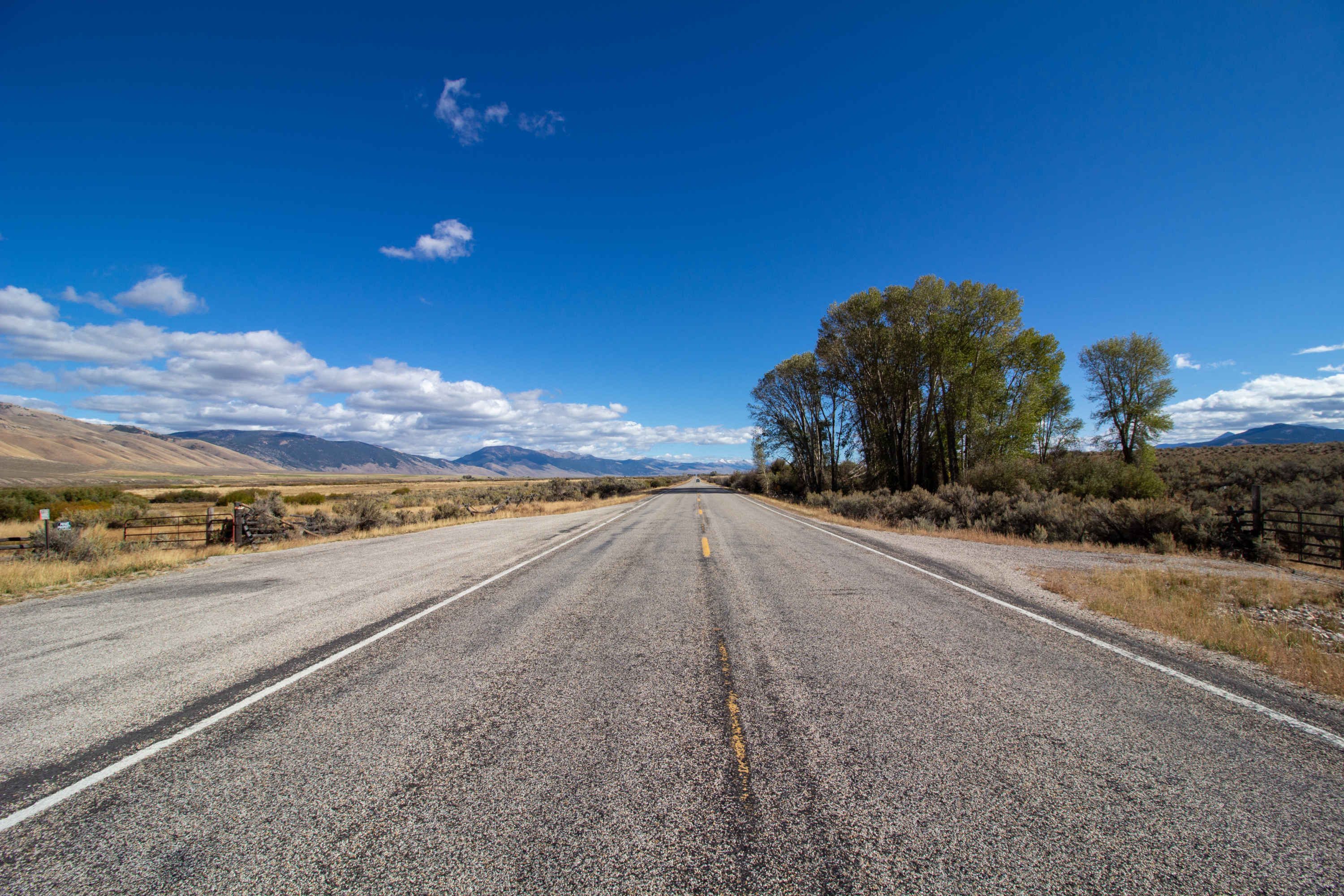
Not a Regular Vacation
Instead of spending all day exploring, this becomes an exercise in slower travel. I tend to spend longer in one location, and limit my outings on days I am working to a walk or hike in the morning, and a walk or dinner out in the evening. When I’ve done this, I have tried to stay with friends or family or done a Home Exchange. This means I am usually staying in more residential neighborhoods and it gives me a better sense of real life in a place. I tend to eat more home cooked meals and go to grocery stores more than when I take a short vacation. If I am on the road longer, I want more comforts of home than I do on a typical vacation.
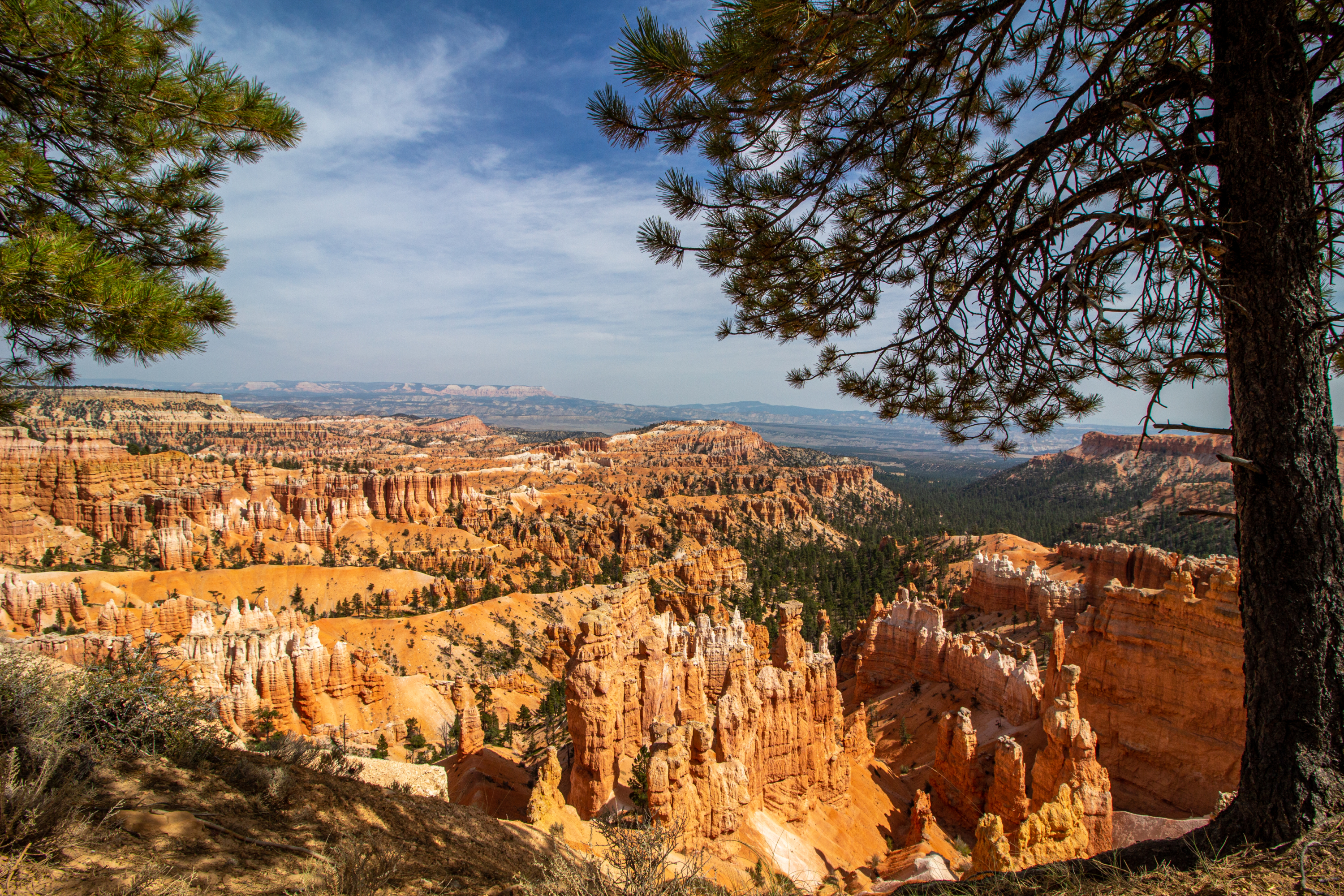
How to Make this Work… With Work?
Get Permission from your Employer
When I took a month-long road trip when I worked for an employer, they did allow for some time to work fully remote. Since then, they developed a policy about the amount of time employees are allowed to work fully remote each year. You should find out what policy your employer has about working remotely and get permission for your trip. Some companies allow a month of remote work time even if there is typically a minimum number of days required in office.
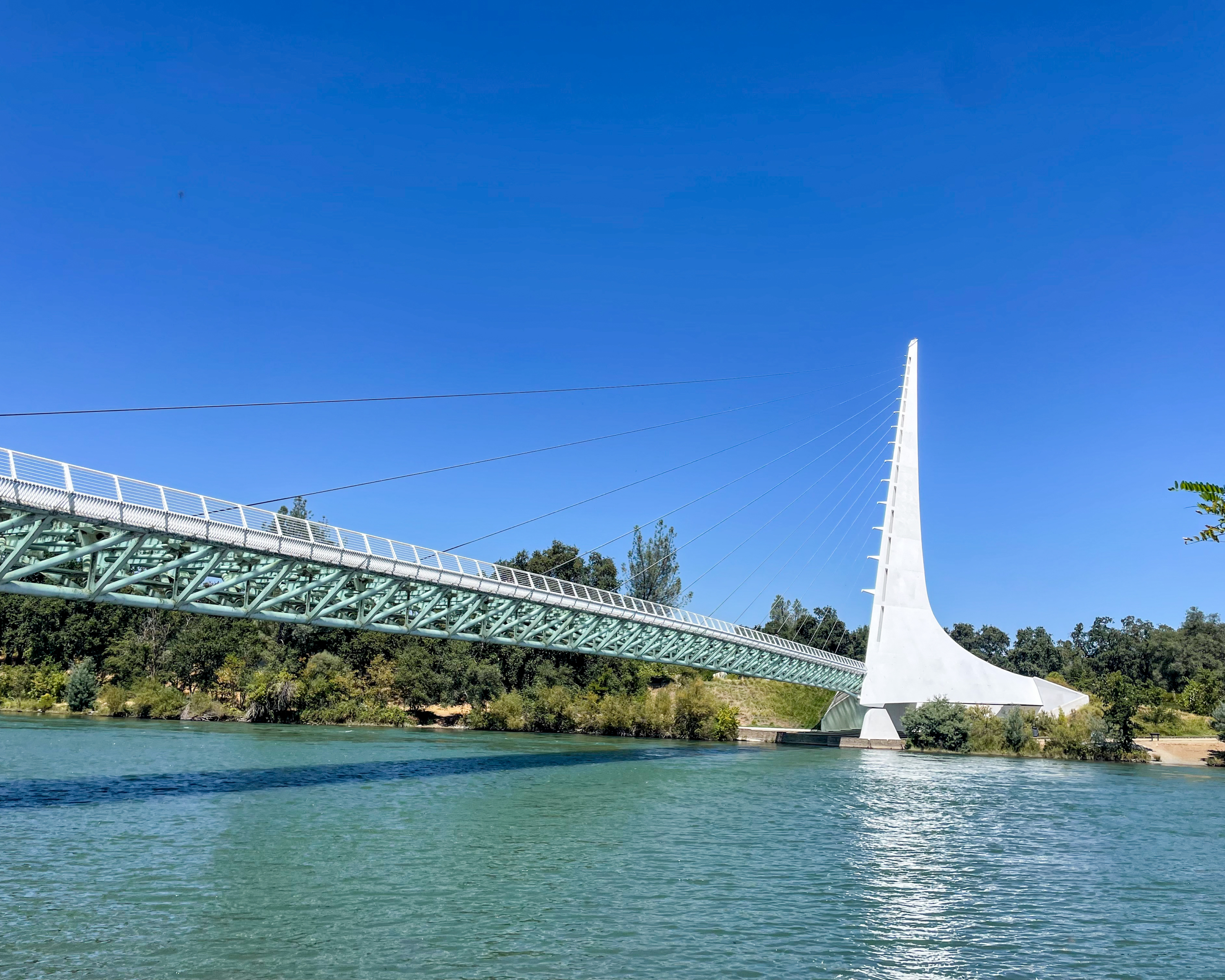
Set Yourself Up for Remote Work as a Solopreneur
As a solopreneur, I didn’t need to get permission from a boss, but it still required planning ahead. As an architect, I have job sites that I visit, and clients that I sometimes meet with in person. I made sure any clients or contractors that I work with and would typically meet with in person knew my plan well ahead of time and continued to remind them prior to my departure. I let them know I would be working remotely and they could still contact me as usual. For any sites that I would need to visit, I made sure to go before I left town. If anything came up where I needed to visit while I was away, I let them know I would visit when I returned.
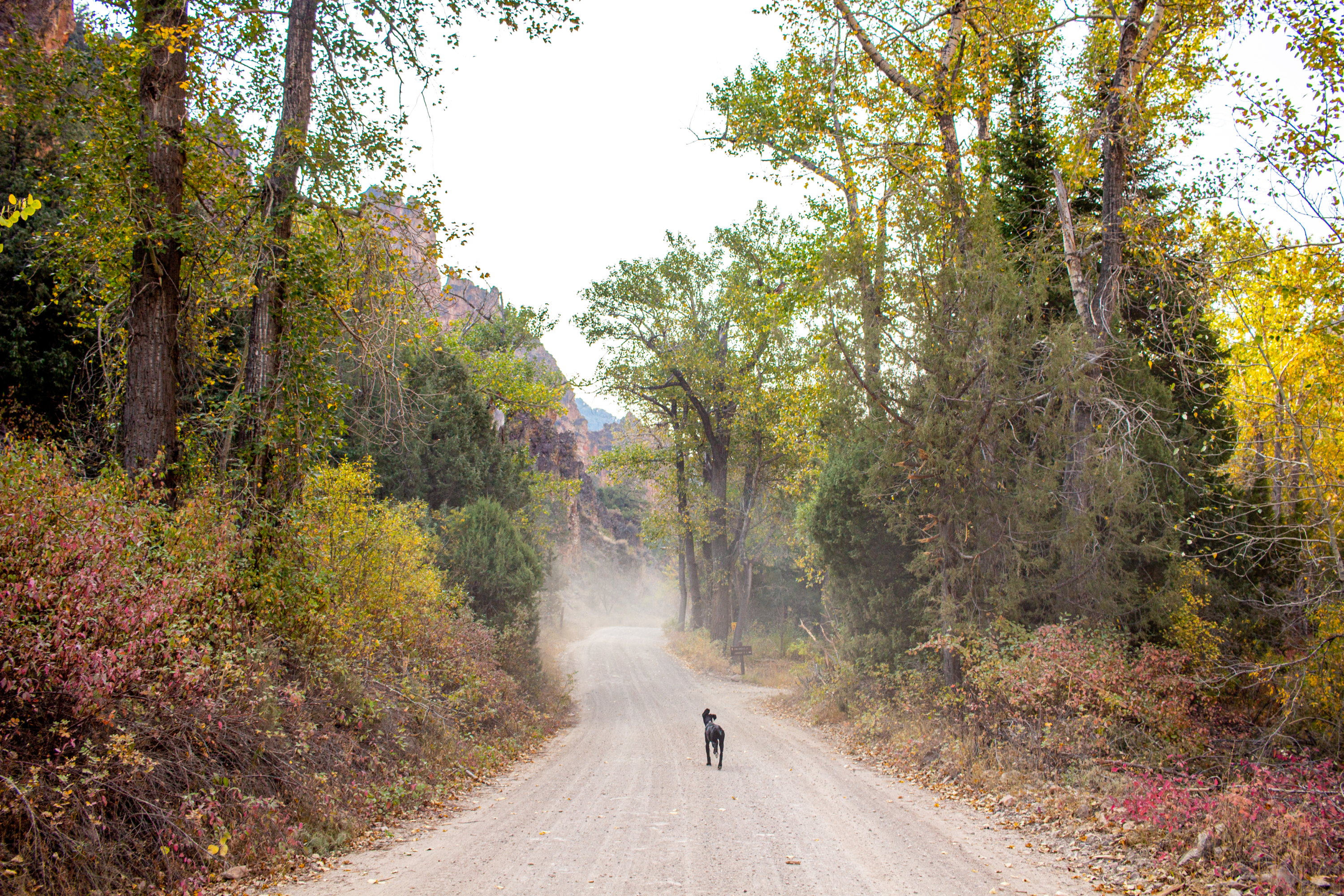
Plan an Itinerary… Or Don’t
On my last trip, this was the most challenging part of the entire planning process. On a previous long trip, I planned about a week ahead as I went. Both worked out in different ways. I’ll break down some ways to help with planning.
I start off thinking about general direction and locations I want to visit and start mapping it out on google maps. Then, depending on other guidelines, I decide if it is feasible and if I need to add or subtract some places to stay.
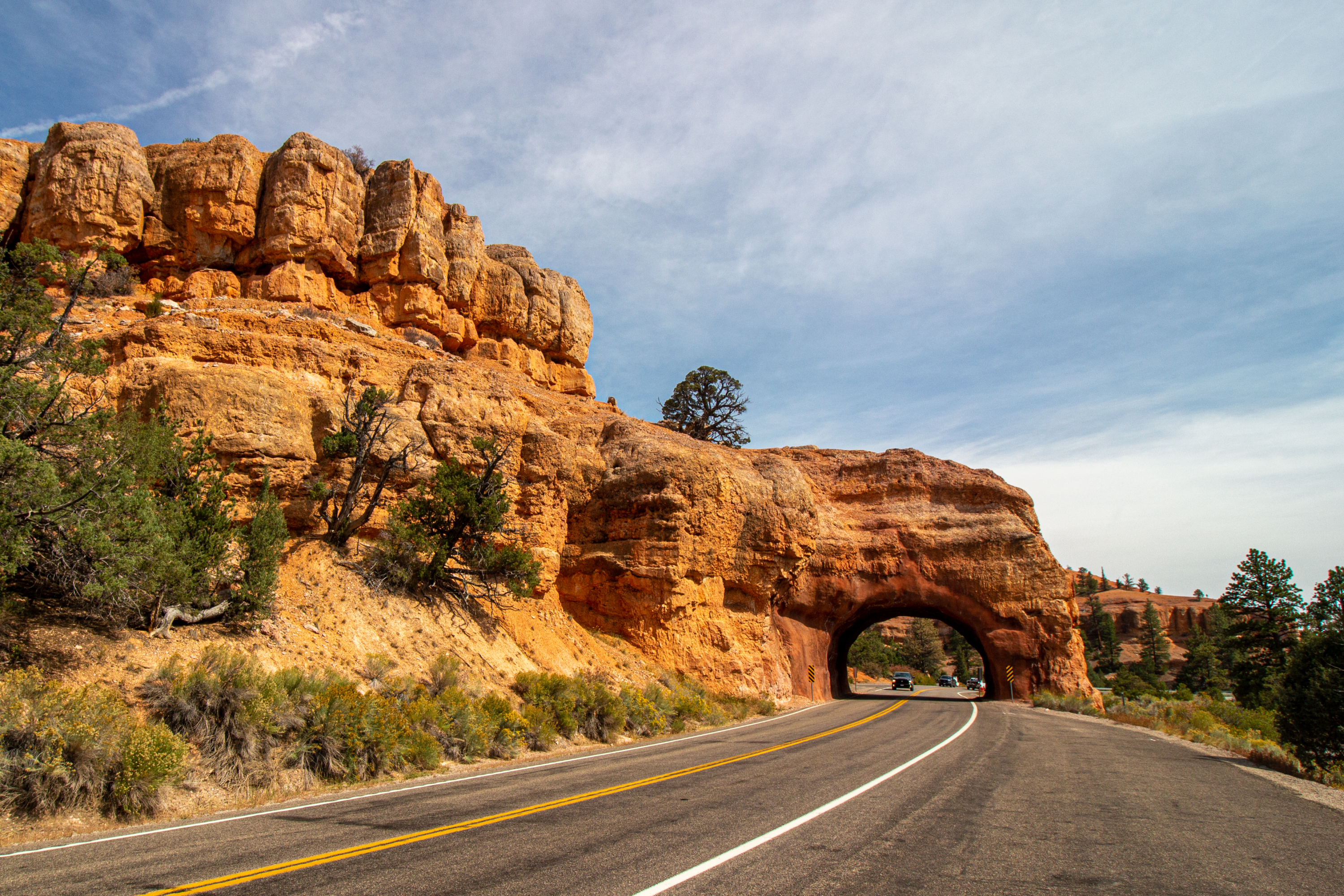
Decide on Your Maximum Driving Time in a Day
I prefer to have long driving days on the very first and last day of my trip and shorter driving days going between locations during the trip. Here are maps of road trips I have actually done.
My maximum driving time is 10 hours (unless there are special circumstances like a dog injury). And on the drives between locations I like to keep to less than 6 hours. I prefer to have shorter drives and like to plan a stop or two along the way to break it up.
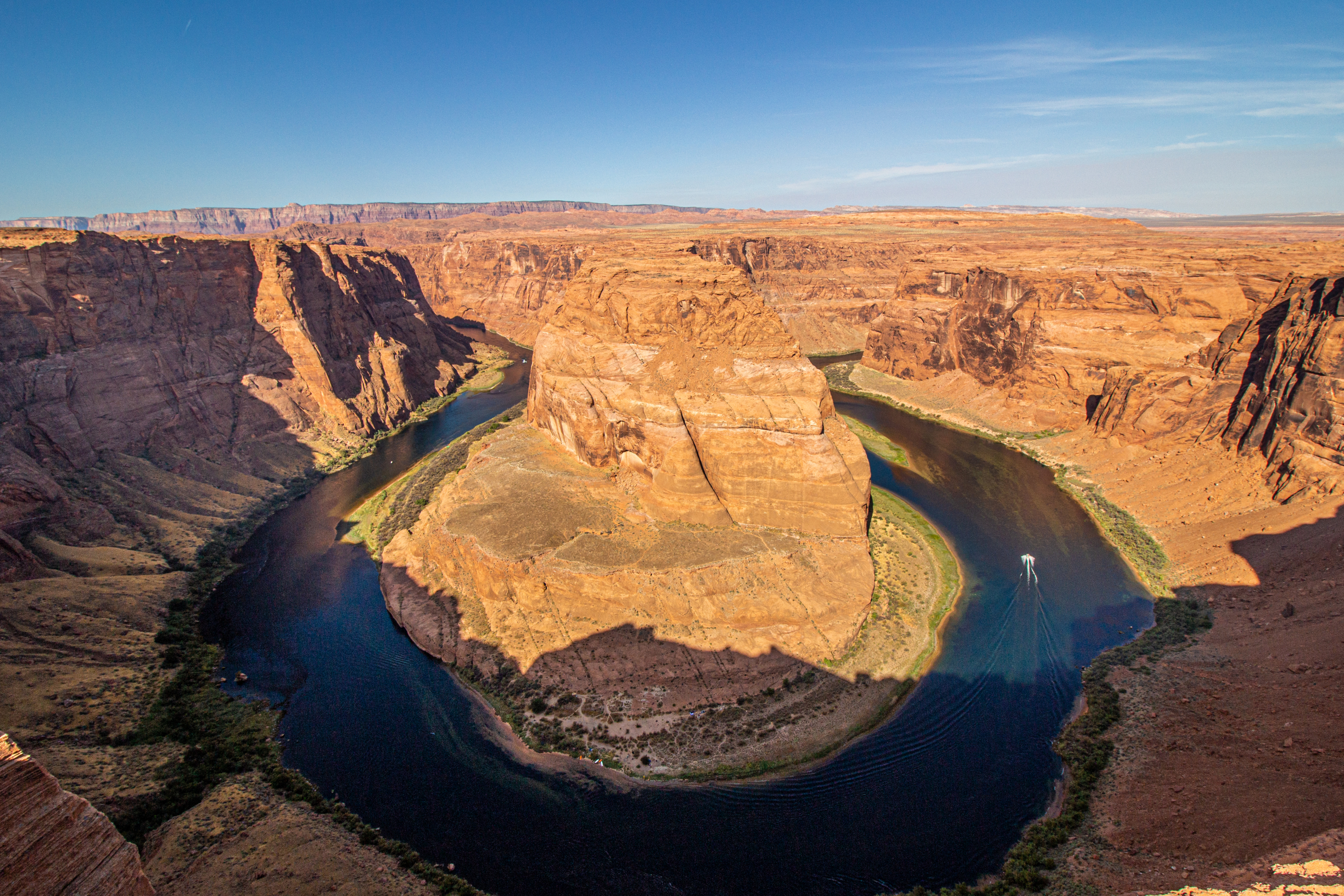
Plan Some Mini-Breaks
Here are some examples I have done on road trips:
- Stopping at Horseshoe Bend and Bryce Canyon driving from Flagstaff Arizona to Salt Lake City, Utah
- Taking the long way from Flagstaff to Phoenix and stopping in Jerome and Prescott
- Find stops along close to the Highway like the Calatrava Sundial Bridge in Redding, California
- Many cities have river or greenbelt walks like Missoula, Idaho Falls, and Twin Falls
Timing
Once you have your ideal route, another challenging thing is to select the dates. I tried to stay with friends and family and schedule Home Exchanges so nailing down schedules that work for you, your friends, your exchangers, your work, and the logical order of your driving route was the most challenging part of the entire trip for me. I tried to plan most of my driving days on weekends or took an occasional day off for driving and/or exploring to make the dates work.

Where will you Sleep and Work?
As I mentioned, I like to stay with friends or family on road trips, but it doesn’t always work out that you will have a place to stay in each location. For working while on the road, I make sure to find accommodations that have wi-fi, a place I can work like a desk or dining room table. I also strive to find some locations that allow for some maintenance on the road, like having access to be able to do laundry once a week. For finding a comfortable place to sleep and work, here are some places I have tried.
Home Exchange
Home Exchange – I had someone stay in my home and also stayed in a house in Portland on my last road trip. I wrote a post about my first experiences with Home Exchange. This is best if you want to stay somewhere at least 3 nights and want to stay in a home. I wanted a house with a yard in a neighborhood in Portland and this worked perfectly for me.
If you join Home Exchange with my referral link we both get 250 guest points, good for 1-2 nights.
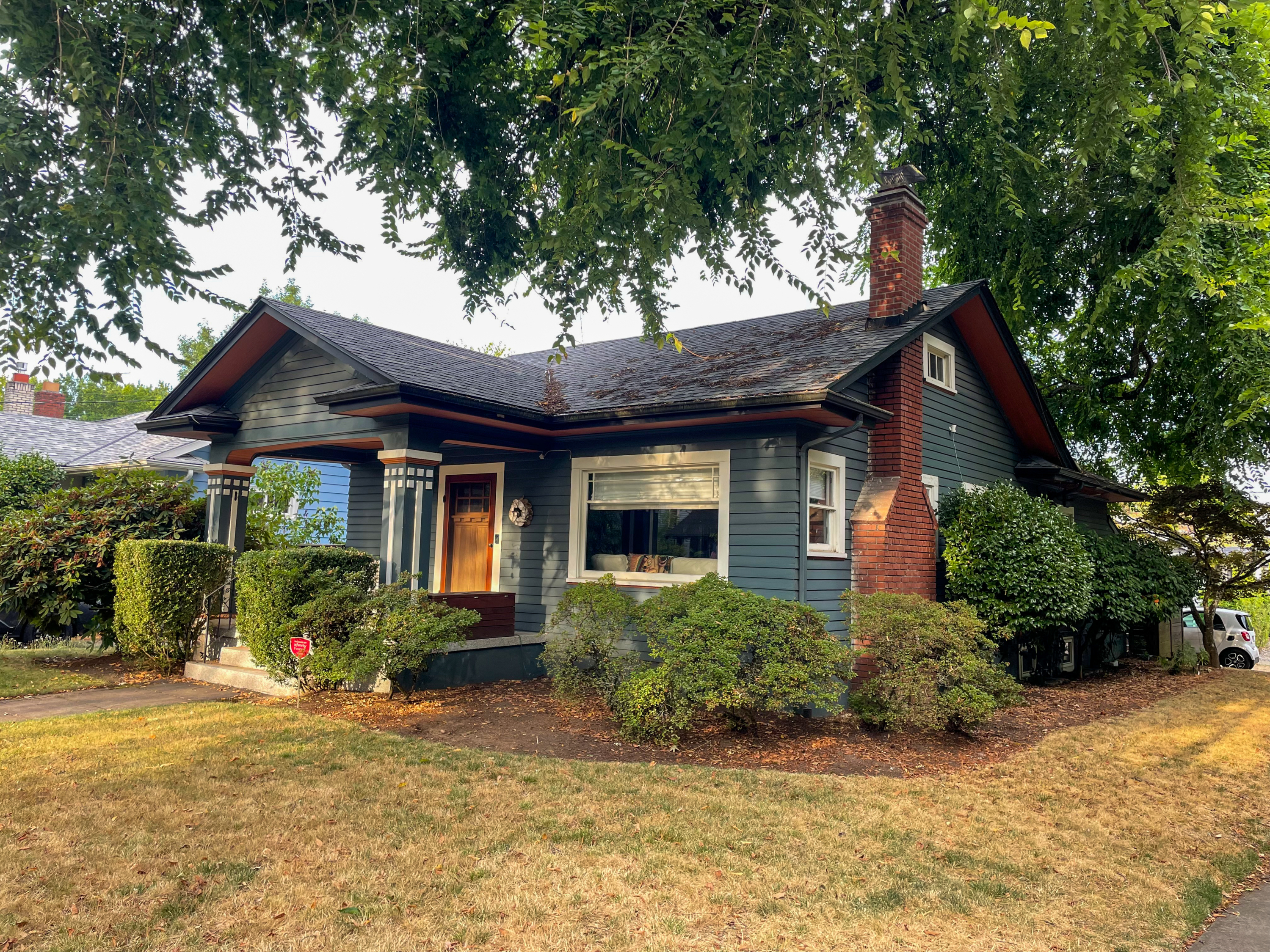
Airbnb
Airbnb – I have mixed feelings about Airbnb and wrote more about that here, but if you want a home with a yard for your dog, there are many options available.
Hotels
Hotels – If I am planning on spending only one or two nights in a place, or need flexibility in timing my booking, a hotel is the best option.
For dog friendly hotels, I love staying in Kimptons. I wish they had more locations! They are all dog friendly and do not charge an extra fee for pets. I stayed at the Kimpton in Salt Lake City with Pepper and it was such a treat to arrive and have someone unload my car for me, take our things to our room, and valet park the car. After a long day of driving and exploring, it was amazing to have the unloading and parking taken care of for me. They even helped me load the car when I left.
Another one of my favorite dog-friendly hotel stays was at Sparrow in Boise. I wrote a post about things to do in Boise with a dog in winter if you want to read more about that.
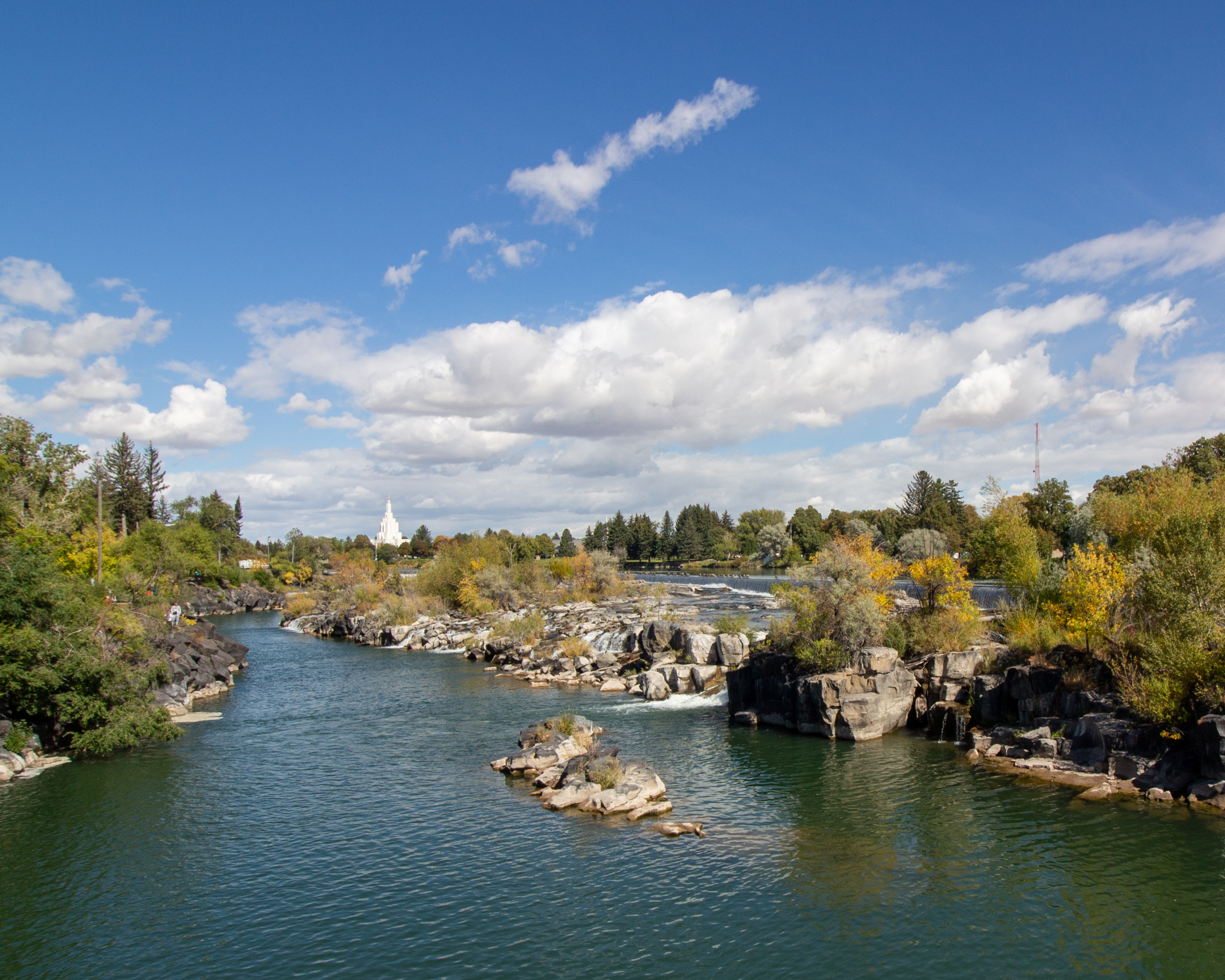
How to Manage your Time in Each Location
I know it is not ideal to be working on a trip, but most people aren’t able to take a month-long vacation so being able to have extended time away from home is worth it. With a dog, I walk every morning, so planning a walk in a different direction each morning is something I love on an extended trip like this. I also try to plan another outing each day. Some things I have done is go to a different food truck pod and have dinner with my dog in Portland or plan urban hikes to explore a different neighborhood each day in Seattle. If you can, plan an occasional weekday off of work or plan on longer adventures or day trips on the weekends.

Other Logistics
Make sure you have essentials in your car like a flashlight, chargers, bug spray, hand sanitizer, and maps. I still order paper maps ahead of time from AAA just in case my phone dies or I am without service. Also, I always travel with extra water and snacks, just in case
If you want more information about bringing your dog, I wrote a whole post about how to pack for a road trip with a dog.
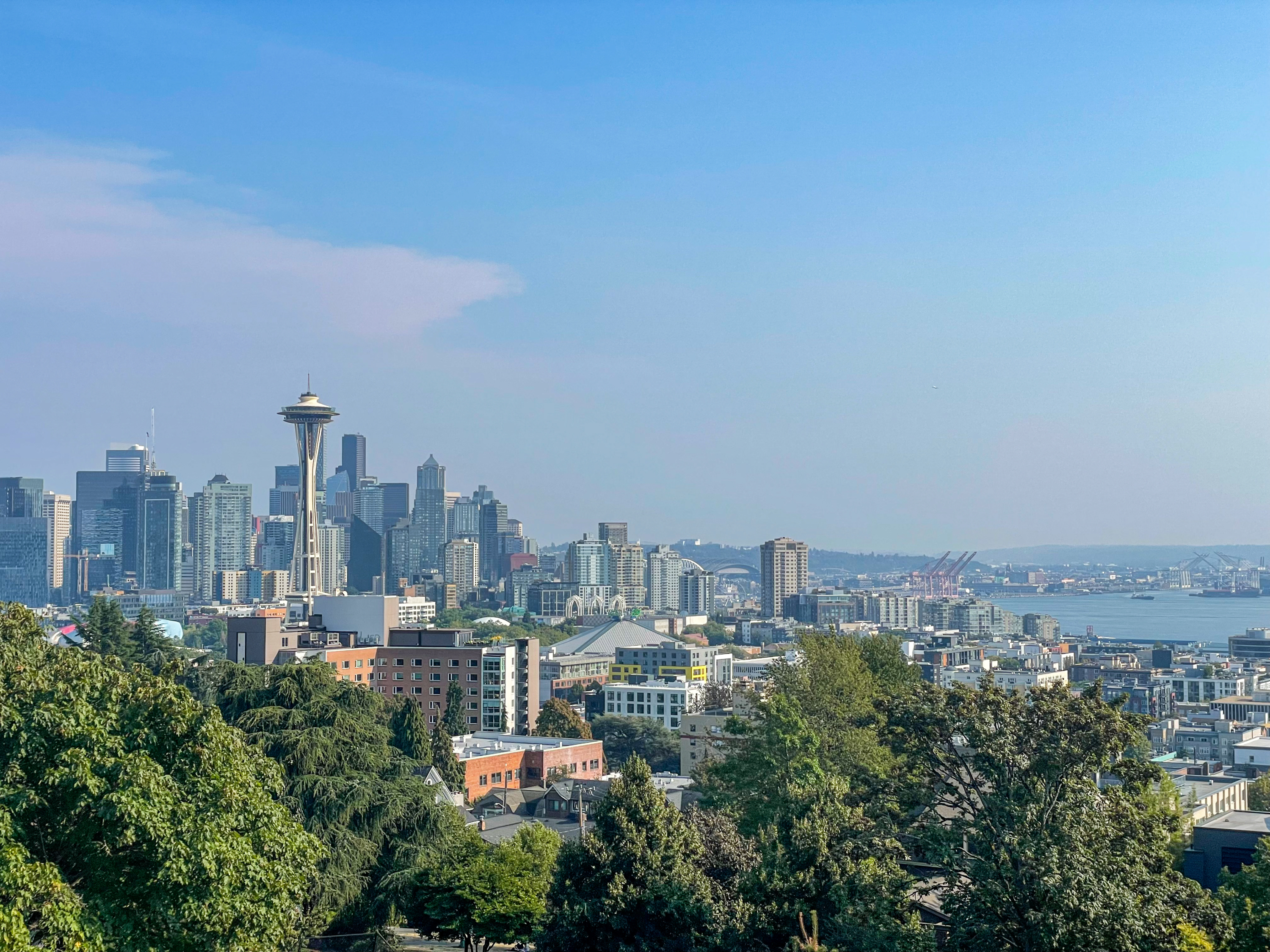
Enjoy Your Road Trip!
Taking a month-long road trip while working isn’t the same as a vacation, it’s an experiment in balance. It requires planning, flexibility, and a willingness to slow down. But it’s also incredibly fulfilling. You get to see new places, shift your perspective, and prove that you don’t have to wait for retirement or a sabbatical to experience extended travel. With a bit of planning, it’s completely possible to make work and wander coexist.

Leave a Reply